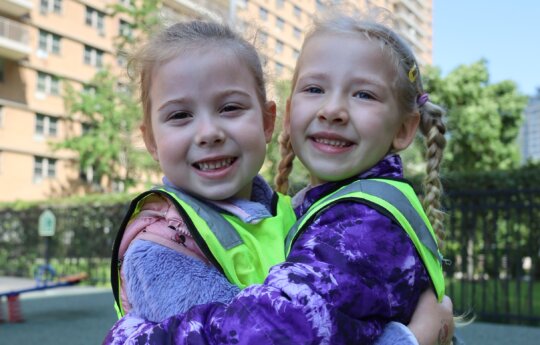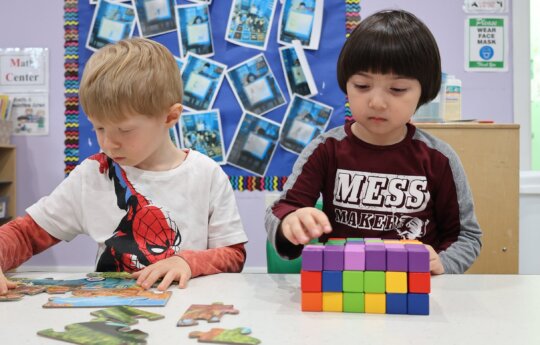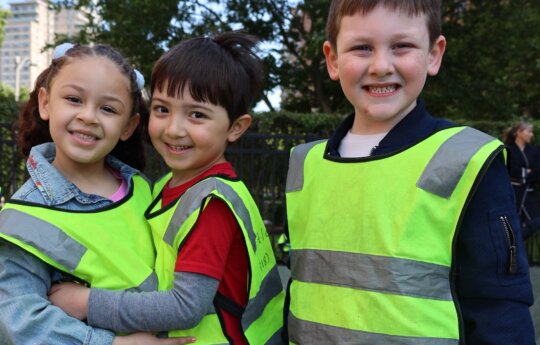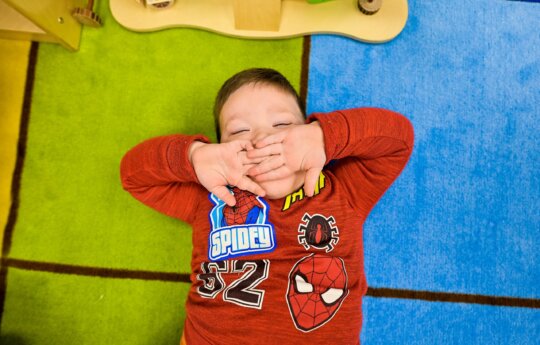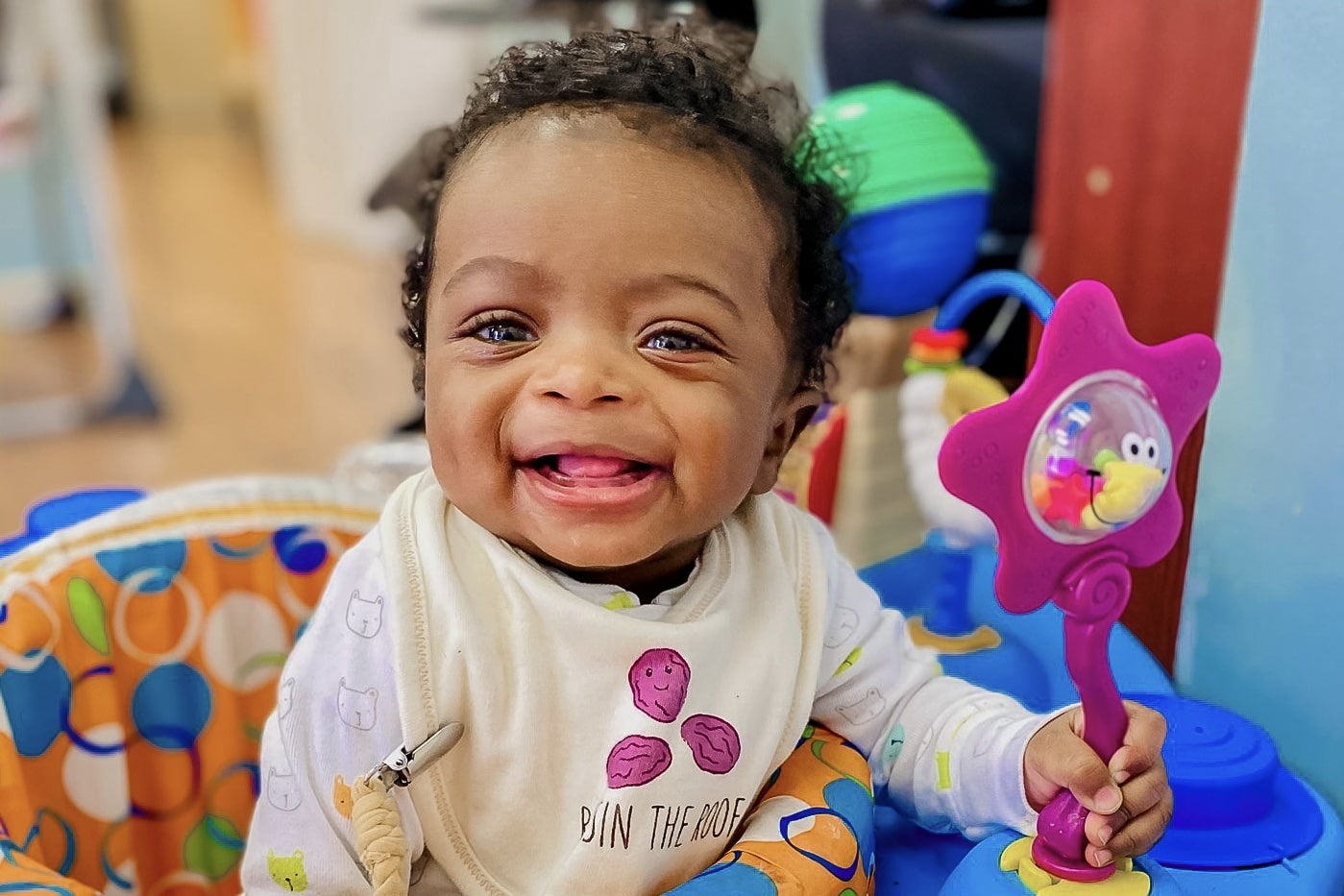
The brain is a remarkable organ as it is in a continuous state of development. In addition to being in a perpetual state of plasticity, it constantly changes and adapts itself to guarantee proper functioning. However, the development it goes through immediately after birth and during the first two years of an individual’s life is mind-blowingly rapid. Arguably, this period is essential for another reason: the connections the brain makes in its early development stage are likely to be relatively permanent. This means that a child’s experiences during the stages have immeasurable effects on their cognitive, emotional, and social growth.
Cognitive Skills in Early Childhood
Cognitive skills are the types of mental skills that enable us to perform some type of mental processing and to think. In a simpler way, these are the brain skills we use to perform any type of task, from simple to difficult. There are different mental processes that fall under this category:
- Attention. The ability to focus and sustain attention on a specific stimulus task.
- Memory. Including working memory processes, which maintain and manipulate information, and long-term memory, which receives, stores, and retrieves information for later use.
- Reasoning. Ability to devise a rule or guideline that will help solve a problem.
- Executive function. Involves higher-level thinking for controlling and regulating other thinking and activities such as monitoring, planning, problem-solving, handling, evaluation, and shifting the tasks when necessary.
Examples of Cognitive Skills in Action
It might help to provide examples relevant to early childhood to paint a more vivid picture. By doing so, here are the following ones:
- Attention: A toddler constructs a block tower and ignores the noise around.
- Memory: An infant realizes that smiling at parents always results in them receiving the corresponding encouragement. Therefore, they repeat the action.
- Reasoning: A 2-year-old brings a chair to the counter and takes an item that was unreachable for them.
- Executive function: A child realizes they will receive an adult’s approval if they neutralize the mess. They scoot toys off the floor. Alternatively, they see that a new activity will soon begin, but the space is cluttered. So, they start picking the objects outade.
The Role of Cognitive Skills in Child Development
First and foremost, cognitive skills are imperative for all other areas of development and learning. Thus, children use them to explore and interact with the environment efficiently, paving the way for the academic skills needed for reading, math, science, and languages. Besides, such skills are vital in social interaction and emotional regulation. For instance, they help children interpret social hints effectively, divide speaking time in a conversation, decide what to play with and how to do it without suffering from negative emotions, and follow variants in routine and rules. It is paramount to note that their development is closely associated with the experiences provided in a child’s environment and nourishing and sufficient new or beneficial experiences can facilitate the enhancement of cognitive skills considerably. On the inverse side, a lack of stimulating experiences or exposure to dreadful settings can have a negative impact on cognitive development and alienness development overall.
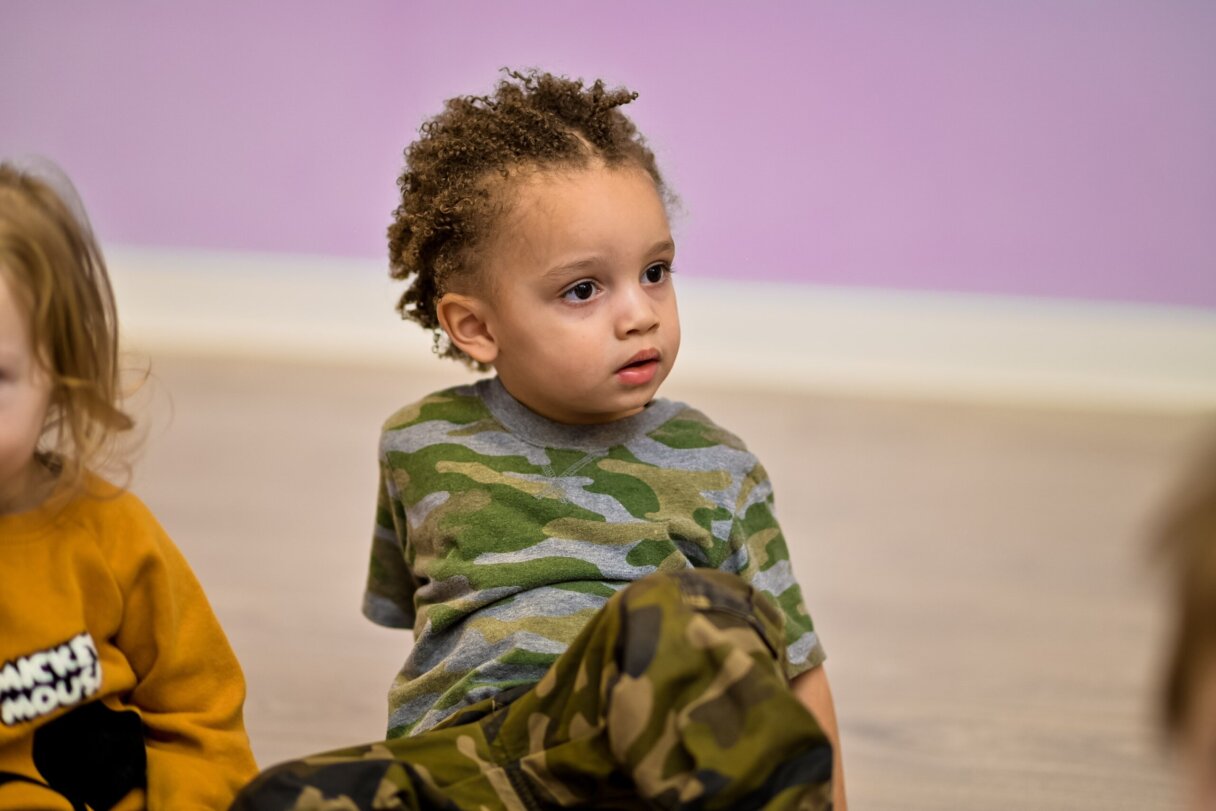
Brain Development Activities for Babies (0-3 Months)
The first three months of a baby’s life are a period of remarkable development for a baby. During this phase, a baby’s brain establishes connections that determine its future cognitive, emotional, and social makeup. It is critical to sensory and motor development because newborns are discovering the basics of interacting with their new world. Everyday activities may be centered on energizing their senses and fostering the beginnings of physical competence, all of which are crucial for their cognitive development.
Key Activities to Enhance Sensory and Motor Skills
It is important to involve the infant in cognitive and physical activities to support the rapid developmental changes during this period. Therefore, the main activities include:
High-contrast visual stimuli
- Why it works: Infants are able to see from the time of their birth, but they are nearsighted, and high-contrast patterns are the most attractive to them. Therefore, providing visual stimuli helps infants develop their visual tracking and cognitive attention skills .
- How to do it: It can be achieved with the use of black and white or other direct contrasts. Try using high-contrast colored mobiles to hang above the crib or changing table. In addition, it is also useful to use board books or flashcards with high-contrast images for visual stimulation.
Gentle sound games for the infant
- Why it works: The most delightful sound for the infant is the voice of a human. In addition to providing comfort, talking and singing to the infant also supports the development of language and auditory processing skills.
- How to do it: The infant should be talked to as much as possible during routine activities such as feeding, changing, or bathing. In addition to the regular talk, it is also good to sing the baby lullabies or other simple songs that they are able to respond to. The songs should vary in pitch and tone to keep their interest.
Tummy time to explore the physical and visual world
- Why it works: The tummy time is the time at which infants lie on their stomachs. It is useful not only to develop the muscles of their neck and shoulders, but also it is the prerequisite for later physical milestones such as crawling. It also helps the infant to develop their motor and visual skills by allowing the ability to lift their heads and look around.
- How to do it: It is better to start doing acts for short periods of time, just a few minutes, but multiple times a day. As the baby grows strong, increase the time of the tummy time. Putting the baby on a playmat without touching or looking at it can be beneficial.
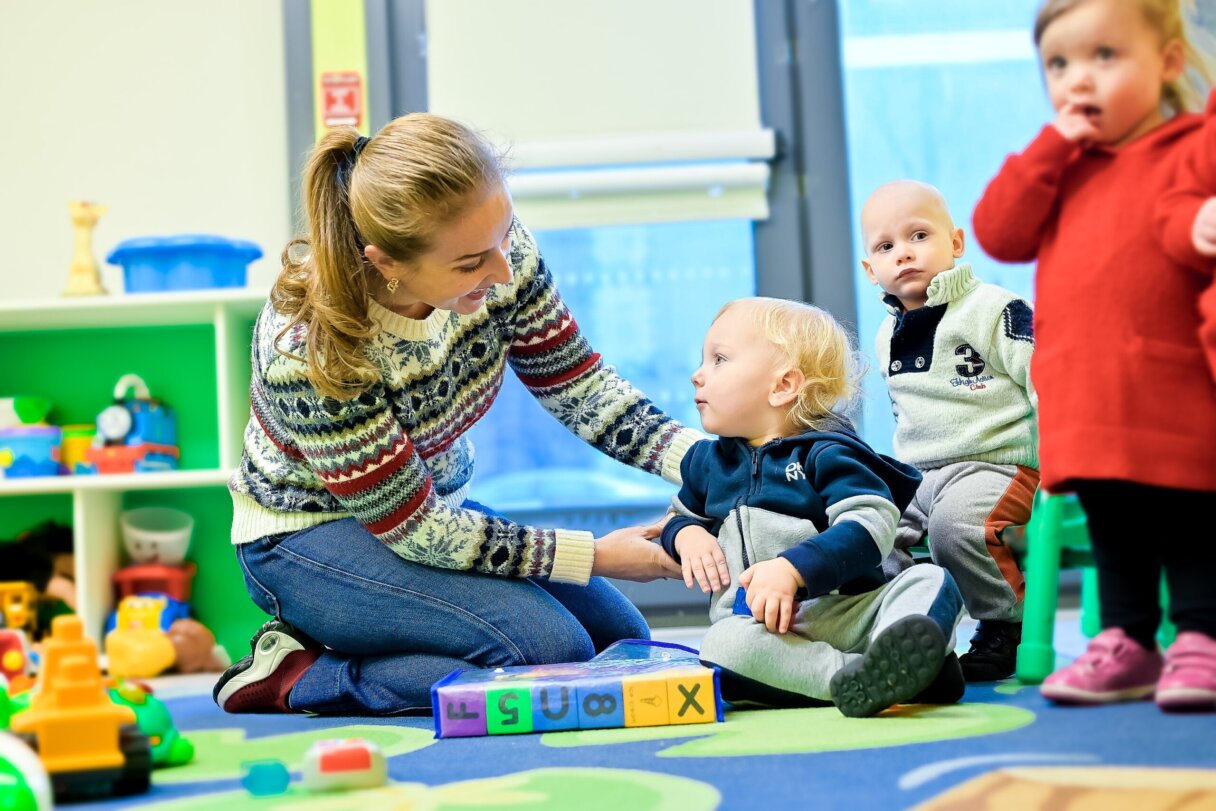
Brain Development Activities (3-9 Months)
Cognitive Development for a 3-Month-Old Baby
As most babies hit the three-month mark, they become both more alert and sensitive to interactions. It provides an ample opportunity to help one’s child develop by practicing a few activities that increase interaction and further aid in sense and motor development.
The first activity is aimed at promoting social development
- Why it works: as month-three babies begin to notice the expressions on their parents’ faces, mirroring such expressions becomes an important social step that helps in socializing thereafter.
- How to do it: as soon as the baby is in the mood for play, one should start making faces and see if they will respond in a similar or different manner. Stick out your tongue, smile, widen your eyes, and wait for the expression to match.
The second activity is focused on improving focus and tracking
- Why it works: these basic tracking exercises will help in mastering a number of crucial future skills, such as reading, writing, and attentiveness.
- How to do it: gently guide your baby’s gaze by moving a colorful toy across the field of vision. Increasing the focus of the movement, use more intricate and complex patterns, including twirls, swirls, zigzagging, and sudden speedups.
Cognitive Development for a 9-Month-Old Baby
For many infants, nine months is when they become more mobile and curious and require activities to challenge the child’s developing problem-solving skills and memory.
Simple Hide and Seek Games
- Why it works: the game helps the child develop object permanence, the understanding that objects continue to exist even when they do not see them, which is crucial for the child’s cognitive development.
- How to implement: ask the child to watch how you are hiding a toy under a blanket/behind a pillow, and ask them to find it. When your child finds the object, you express your joy and the child’s success.
Encouraging Crawling Through Obstacle Courses
- Why it works: courses that include a number of obstacles help the development of both cognitive and physical skills, such as problem-solving, spatial awareness, and query coordination and control.
- How to implement: entice your baby to crawl through the safe obstacle courses that you can engineer using pillows, boxes, soft toys, etc., and crawl under the obstacles and over them around them.
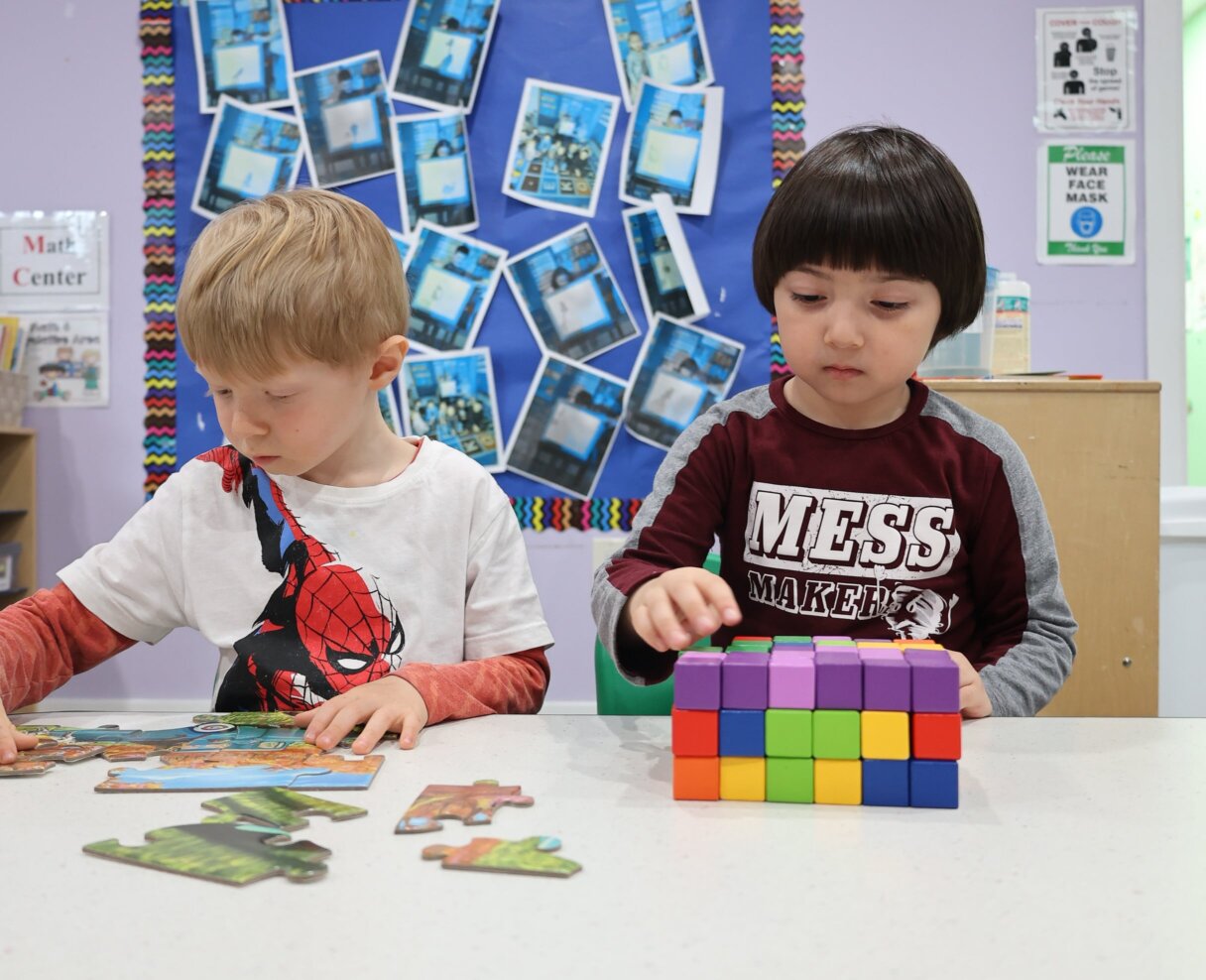
Brain Development Activities for Toddlers (1-2 Years)
Toddlers’ cognitive capabilities rapidly expand as they grow. As a result, between 1 and 2 years of age is the ideal time to have them engage in more complex activities that challenge their thinking and consequently improve their problem-solving skills. Such activities can be tailored to assist these toddlers in acquiring fine motor skills, expanding their vocabulary, and understanding relationships between objects in a way that is more complicated.
More Complex Cognitive Goals
Sorting shapes and colors
- Why it works: Enables toddlers to begin understanding categorization and pattern recognition, aspects of logical thought.
- How to implement it: Give your toddler a variety of blocks or toys that come in many shapes and colors. Ask your toddler to decide which colors and shapes go together and have your toddler place them in groups or ‘safe-houses’. Use sorting toys like shape sorters during the activity. Help them by naming the colors and shapes during that time, so they can incorporate them into their vocabulary.
Simple puzzles and building blocks
- Why it works: Puzzles and building blocks are instrumental in boosting fine motor skills, hand-eye coordination, and spatial awareness. They will also force your toddler to engage in goal-oriented problem-solving, a primer for bigger kids puzzles.
- How to implement it: start off with large-piece puzzles that snap into one another, so it’s easier for your toddler to handle them. Make them aware that the pieces go into a single surface in order to create a single picture. Blocks can also function as tools for building toys your toddler can use and form new things. Show them how different blocks or pieces can be put on top of one another to create a stable structure.
Read interactive stories to work on language skills
- Why it works: interactive stories are essential for language lessons, as they can also teach the toddler social and emotional subjects. Your toddler should begin listening to more stories in order to familiarize themselves with plots and stories.
- How to implement it: Select books with simple plots and vivid images. Inquire about the reading in order to be actively involved and make it interactive. Such questions will differ: “What do you think will happen then?” “Have you seen that big red apple?” A toddler must, at that time, become part of the story.
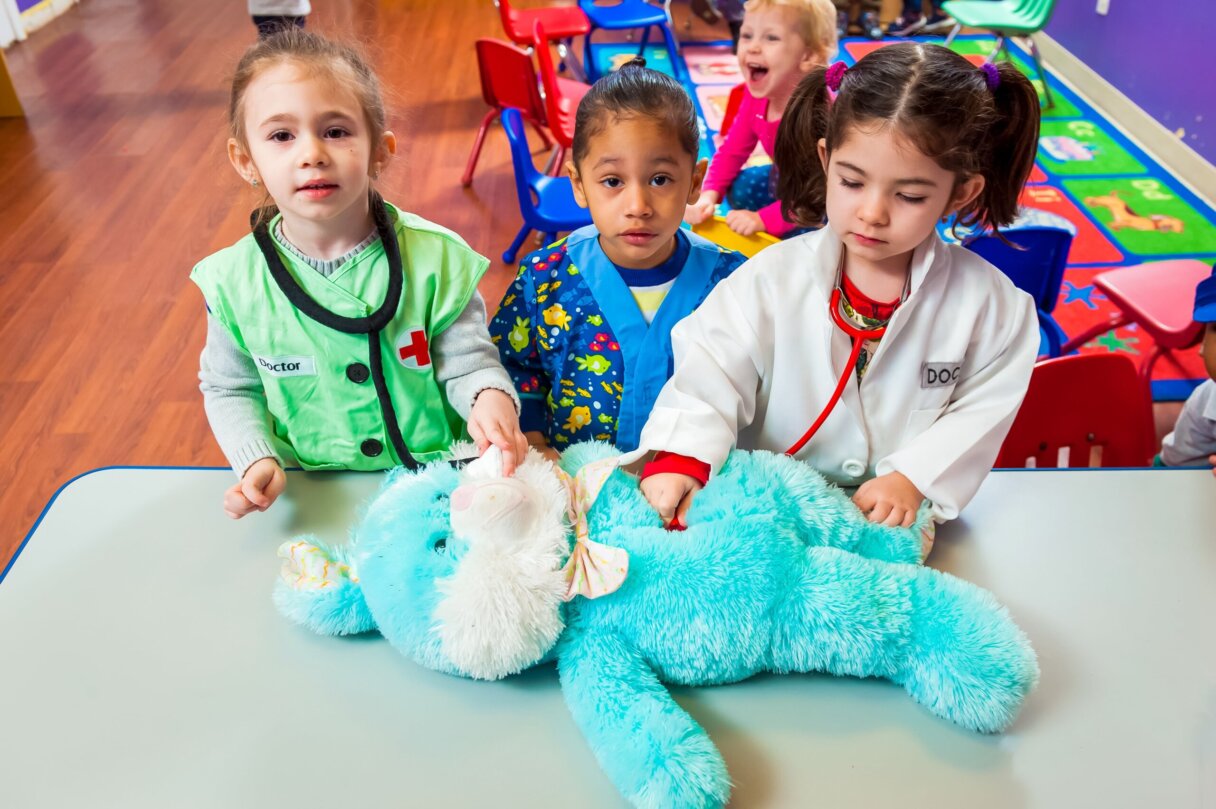
Advanced Cognitive Development for 2 Year Olds
When children are on the threshold of their second birthday, they need more challenging activities to engage their cognitive abilities, and encourage social interaction as well as more refined motor skills. At this stage, not only should they continue developing the skills they are already familiar with, but they should also be taught more advanced thinking, such as role-play, strategic thinking, and the cultivation of a richer understanding of nature.
Activities Designed to Challenge and Engage
Role-playing and imaginative play
- Why it works: Role-playing and imaginative play is crucial in developing empathy, problem-solving, and creativity. It allows children to test social and emotional aspects of life and will support their ability to narrate their own stories or ideas.
- How to implement: Provide costumes, dolls, action figures, or everyday items as props for an imaginative play. Get involved yourself, take on some roles, and act out some scenarios. You can play shops, a family, a zoo, or be characters from a favorite book or film.
Simple board games that required turn-taking and rule-following
- Why it works: Board games are great for teaching young children the importance of rules, turn-taking, and fair play. Board games can also improve a child’s attention span and teach them to think strategically.
- How to implement: Get board games specifically designed for young children—shorter in length than those intended for an older audience and with a simpler set of rules. Choose games requiring color matching, simple counting, or a memory test. Encourage children to follow the game’s rules and wait for their turn, and you create a discipline that will be expected of them in preschool and beyond.
Outdoor exploration and sensory walks
- Why it works: Outdoors is vital for a child’s physical health but also an important aspect of cognitive development. Time spent outdoors through nature walks will stimulate a child’s senses and increase their curiosity about the world around them.
- How to implement: Take your child for a walk to a nearby park, forest, or nature reserve. Ask what your child can see or hear, smell or touch. Allow your child to examine leaves, insects, or small rocks with a magnifying glass where possible – this will help improve key observation skills and stimulate their scientific thinking.
Tips for Parents and Caregivers
To ensure effective and continuous cognitive development, it is necessary to incorporate developmental activities into daily routines and be aware of the signs of healthy brain development. In this regard, the list of simple and intuitive tips and insights is formulated for parents and caregivers to follow and apply in practice.
Incorporate Developmental Activities into Daily Routines
- Create a Routine. To begin, make a schedule that may include various types of play, learning, and rest. Importantly, a child should understand the rules to learn better from activities.
- Utilize Everyday Moments. Shopping, bath time, mealtime, or quiet time can also be an excellent learning opportunity. For instance, counting fruits while shopping, naming body parts during bath time, or discussing colors and shapes while setting the table is possible.
- Involving Children in Household Chores. Laundry sorting by color and then size, putting away groceries, classifying toys, tidying up, and working with children on determining their right places are a few examples.
- Moreover, it is essential for parents to be patient and offer children choices so that they might choose what activity to do.
Signs of Healthy Brain Development to Watch for
- Be Informed of Developmental Milestones: Know about the common landmarks such as smiling, babbling, sitting up, crawling, walking, and talking. It will ensure that your child is progressing well.
- Display Curiosity and Desire to Explore the World: Eventually, your child will show some interest in the world and a desire to explore different things.
- Socializing Abilities: Different issues show that the kids have mastered the art of interacting with their peers. They include tracking movement with their eyes, trying to express inner emotion through body language, smiling or crying to gain an adult’s attention, keeping an eye on adult movements, and copying facial reactions.
- Problem-Solving Skills: The child may try to envisage different ways to solve a problem and wonder how the equipment may have worked.
- Language Skills: The child has the ability to add more words to his/her vocabulary and try to construct a simple sentence.
Conclusion
The described activities and methods have been created to help ensure the cognitive development of young children, from their earliest days through the toddler age. The start of such experiences is important, as it determines the ways and quality of further learning and development processes. In general, the main point of such activities is to provide exposure to the sensory, motoric, and other aspects of children’s experience while developing these children’s problem-solving and social skills to function more efficiently in the surrounding complex environment.
The Little Scholars Difference
We at Little Scholars Daycare are here to help your child grow. With the incorporation of tailored programs and highly professional and dedicated staff, we invite you to join the community where learning and growing happen effortlessly and naturally. Enroll your child into our daycare and watch the amazing transformation they undergo as they explore, learn, and thrive. Contact us to learn more about the programs and the degree to which we can contribute to your child’s future – let us lay the foundation for your child’s vibrant future together!

